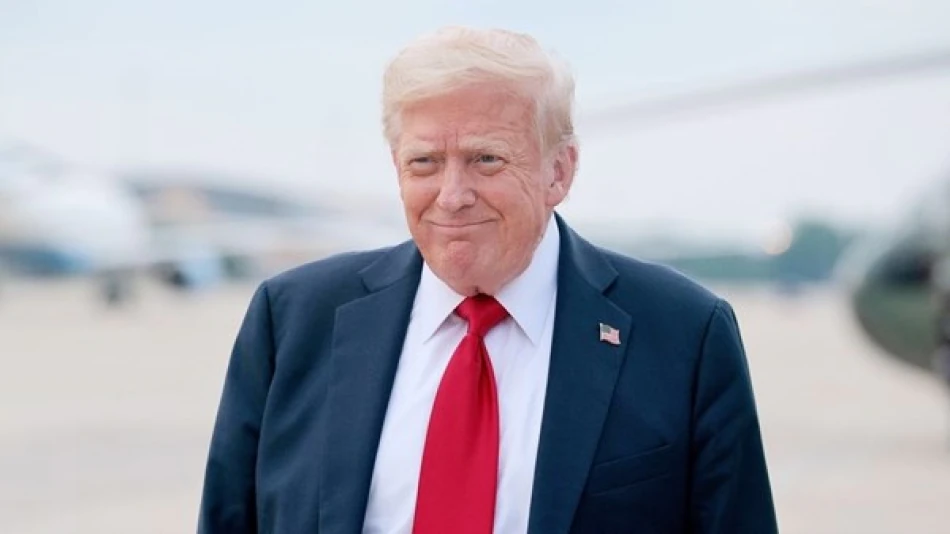
Trump Threatens Tariff Hikes on Countries Imposing Digital Taxes
Trump's Tech Shield: How Digital Services Taxes Could Spark New Trade Wars
President Donald Trump has escalated his confrontation with international allies over digital regulation, threatening sweeping tariffs and export restrictions on countries that impose taxes or regulations targeting American technology giants. The ultimatum marks a significant shift in trade policy that could reshape global digital commerce and force nations to choose between domestic tech regulation and access to U.S. markets.
The Digital Tax Battlefield
While Trump avoided naming specific countries, his threats clearly target nations implementing comprehensive digital governance frameworks. The European Union's Digital Markets Act and Digital Services Act, which regulate competition and content moderation respectively, represent the type of legislation Washington now considers discriminatory against U.S. tech companies.
The United Kingdom's digital services tax, which specifically targets large technology firms' revenues, exemplifies the regulatory approach that has drawn Trump's ire. These measures typically affect American tech behemoths including Amazon, Google's parent company Alphabet, Meta, and Apple—companies that dominate global digital markets but face increasing scrutiny abroad.
Canada's Strategic Retreat
Trump's strategy has already proven effective. In June, he canceled trade negotiations with Canada over Ottawa's planned digital services tax targeting major American technology companies. Canada subsequently withdrew the tax proposal, demonstrating how economic pressure can override domestic policy priorities.
This precedent suggests other nations may face similar choices between maintaining digital sovereignty and preserving trade relationships with the United States.
The Stakes for Global Tech Governance
Trump's approach represents more than trade policy—it's a fundamental challenge to how nations regulate the digital economy. By threatening to restrict exports of American technology and semiconductors, the administration is weaponizing U.S. technological dominance to protect its corporate champions.
The semiconductor threat carries particular weight, as American companies control critical portions of the global chip supply chain. Export restrictions could severely impact countries' technological infrastructure and economic competitiveness.
Market Implications
For investors, Trump's digital protectionism creates both opportunities and risks. American tech stocks could benefit from reduced regulatory pressure internationally, potentially boosting valuations for companies like Meta, Google, and Amazon. However, retaliatory measures could fragment global markets and increase compliance costs.
The policy also signals to international markets that the U.S. will aggressively defend its technological advantages, potentially accelerating efforts by other nations to develop domestic alternatives to American tech platforms and infrastructure.
A Pattern of Targeted Protectionism
Since returning to the White House in January, Trump has systematically deployed tariffs across multiple sectors, including steel, aluminum, and automotive industries. The extension of this approach to digital services represents an evolution in trade strategy, acknowledging that technology companies now require the same protection traditionally afforded to manufacturing.
This sectoral approach allows for precise economic pressure while maintaining broader diplomatic relationships—a more sophisticated tool than blanket trade wars.
Global Regulatory Crossroads
Trump's ultimatum forces a critical decision point for international digital governance. Countries must now weigh their regulatory ambitions against economic consequences, potentially creating a two-tiered global system where American tech companies operate under different rules depending on their host nation's relationship with Washington.
The long-term implications extend beyond immediate trade concerns. If successful, this strategy could establish American tech companies as effectively immune from meaningful international regulation, fundamentally altering the balance between corporate power and national sovereignty in the digital age.
Most Viewed News

 Layla Al Mansoori
Layla Al Mansoori






